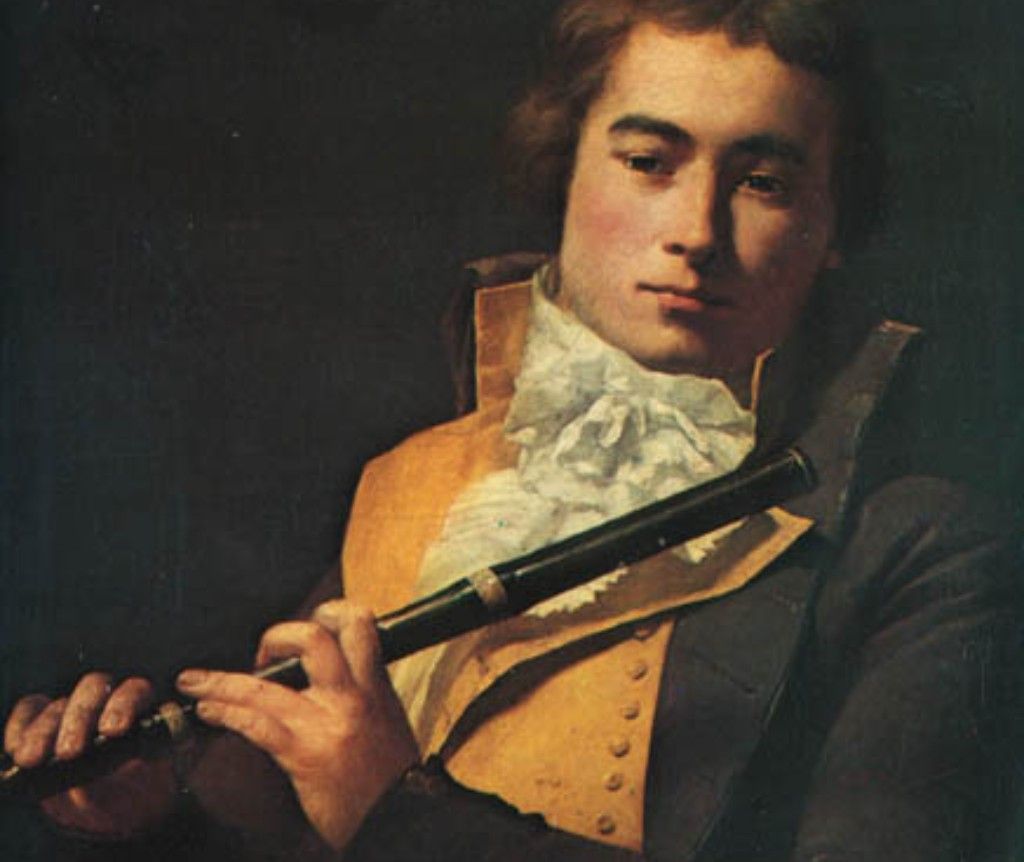Welcome to Harmonia Uncut, the podcast that takes you to early music performances you might have missed. I’m Wendy Gillespie, inviting you to join me for a trip to Bloomington, Indiana way back in December of 1988 for an Early Music Institute student/faculty/guest concert at the IU School of Music that described itself as “a program of curious and decadent classical and early romantic Music.” Two of the students in that concert went on to become faculty members of the now Historical Performance Institute of the now Jacobs School of Music, those more recent incarnations of long-standing traditions.
There is no tutti piece in this concert, and we’ll concentrate on music featuring the two aforementioned students who became faculty, Colin St. Martin and Richard Seraphinoff.
Francois Devienne was a celebrated performer on flute and bassoon, professor of flute at the Paris Conservatory, and a composer. His Sonata No 1 in G Major for flute and continuo has three movements, marked Allegro, Adagio, and Allegro non troppo.
MUSIC (10:23)
Colin St. Martin, now the traverso professor at the Historical Performance Institute of the Jacobs School of Music, was a talented masters student in 1988. He played François Devienne’s Sonata No. 1 in G Major with Professor Elisabeth Wright, fortepiano and Charles Koster, a fellow student, on bassoon.
Carl Philipp Emmanuel Bach, the fifth child and second surviving son of Johann Sebastian Bach and Maria Barbara Bach, is known as the Hamburg Bach because he succeeded his godfather Georg Philipp Telemann as kapellmeister in Hamburg. Like the other three Bach children who became professional musicians, Emmanuel was trained mostly by his father, but as you’ll clearly hear, he then went on his very own musical path. Let’s hear Colin St. Martin and faculty member Stanley Ritchie play CPE Bach’s Duo for violin and flute, comprising three movements - Andante; Allegro; Allegretto.
MUSIC (8:00)
Colin St. Martin and Stanley Ritchie played flute and violin respectively in Carl Philipp Emmanuel Bach’s Duo for violin and flute, which certainly qualifies as “curious and decadent” to this listener, at least!
We turn now to music of Frédéric Duvernoy, another composer-performer, this time a French horn virtuoso who was in the Opera Orchestra before he became a renowned soloist.
In addition to being a celebrated builder of natural horns, Richard Seraphinoff is another student at the IU School of Music who became a faculty member. We’re going to hear Rick play Duvernoy’s Trio for horn, violin, and fortepiano in two movements - Adagio and Allegretto with faculty members Stanley Ritchie, violin and Elisabeth Wright, fortepiano.
MUSIC (7:16)
Richard Seraphinoff, horn, Stanley Ritchie, violin, and Elisabeth Wright, fortepiano. Frédéric Duvernoy’s Trio for horn, violin, and fortepiano in a concert on December 6, 1988, in Recital Hall of what was then the IU School of Music. The performers styled the concert “A Program of curious and decadent classical and early romantic Music.”
Many thanks to our friends at the William and Gayle Cook Music Library for very kindly digitizing a reel-to-reel tape for our use.
Please feel free to share your thoughts about this podcast if you feel so inclined. You can find Harmonia on Facebook, or leave a comment or question any time by visiting harmonia early music dot org. This has been Harmonia Uncut, and I’m Wendy Gillespie, thanks so much for joining me!










